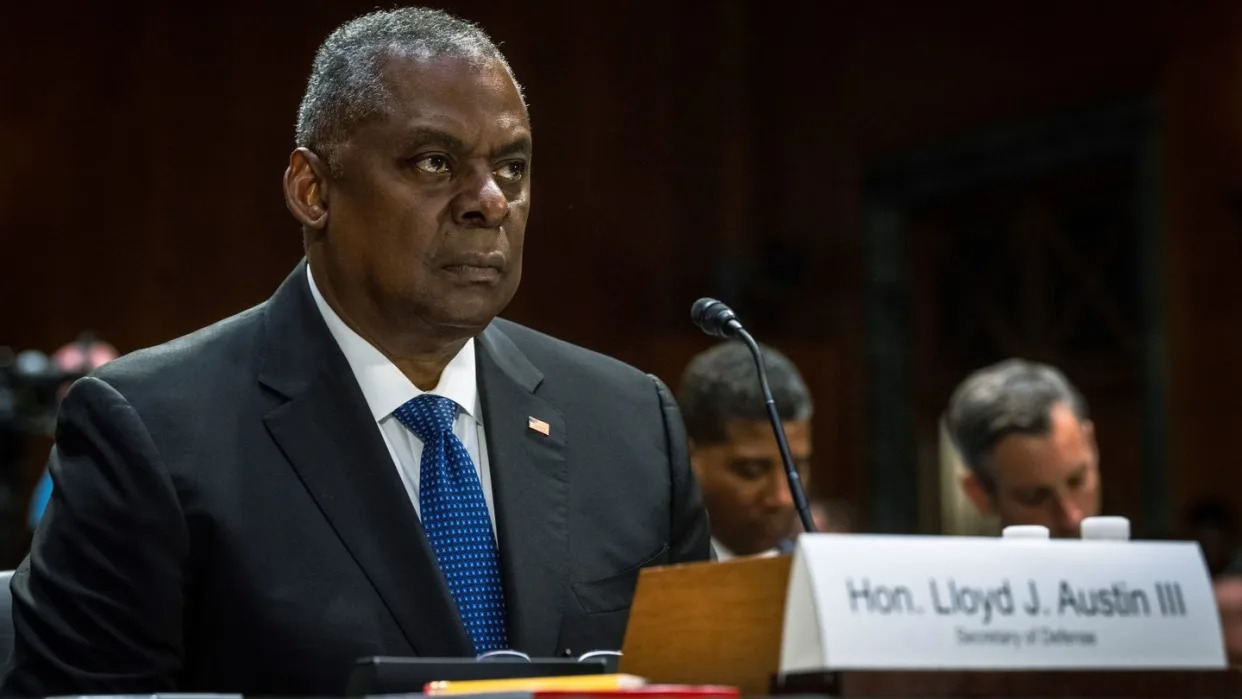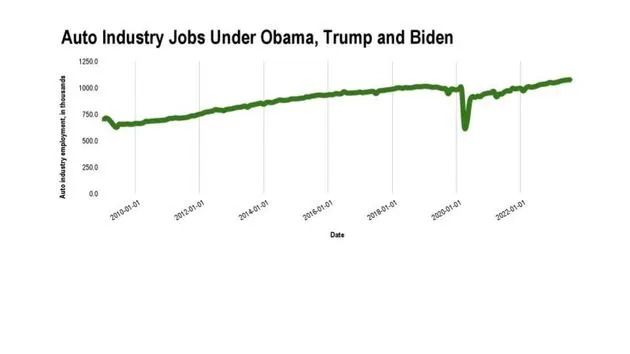Erwin Chemerinsky
Thu, September 28, 2023



AlxeyPnferov/Getty Images/iStockphotoMore
The laws in Texas and more than a dozen other states which ban gender-affirming care for transgender minors are stunning in their cruelty and are clearly unconstitutional, as infringing on the rights of parents to control the upbringing of their children. They also interfere with the right to receive needed medical treatment.
On Aug. 31, the Texas Supreme Court allowed a law to go into effect that is a near total ban on gender-affirming care for minors, including prohibiting them from receiving treatment common for gender dysphoria (the medical term for a person’s conflict between an assigned gender at birth and the gender the person identifies with). Treatments include puberty blockers and hormone therapy. Except for abortion, it is difficult to think of another instance in which state governments have banned the use of prescription drugs approved by the Food and Drug Administration.
As with laws forbidding medication to induce abortions, the statutes in Texas and other states are entirely about conservative politics and not at all about health and science. Major medical associations, such as the American Academy of Pediatrics and the American Medical Association, have concluded that gender-affirming care is medically appropriate and necessary.
Indeed, the Supreme Court has been clear for a century that parents have a fundamental right to make crucial decisions concerning their children. In Meyer v. Nebraska, in 1923, the Supreme Court declared a state law prohibiting teaching of the German language unconstitutional.
“Corresponding to the right of control, it is the natural duty of the parent to give his children education suitable to their station in life,” the court ruled. Two years later, in Pierce v. Society of Sisters, the court declared an Oregon law that prohibited religious school education unconstitutional, speaking of “the liberty of parents and guardians to direct the upbringing and education of children under their control” in its ruling.
In subsequent cases, the court has ruled in favor of the right of Amish parents to exempt children from compulsory schooling laws and against allowing a court to grant grandparent visitation over a parent’s objections. The court has repeatedly reaffirmed the right of parents to make crucial decisions concerning their children.
The right of parents, of course, is not absolute. States can prevent parents from abusing or neglecting their children, and, if needed, terminate parental rights. But no such compelling interest exists to prevent parents and children the right to decide whether to receive gender-affirming treatment. The unconstitutionality of these laws is further magnified because the states are interfering with the right of access to necessary medical care. These laws deny treatment that a patient, their parents and a doctor deem appropriate.
Legislators say that they are adopting these laws to protect children from the harms of gender-affirming care. Of course, parents who believe that the dangers of treatment outweigh the benefits can decide not to provide it to their transgender children. But it is wrong and unconstitutional for the legislature to decide that no children can have medical care that health care professionals say is appropriate and will save lives.
All of this should make the fate of these laws as a legal matter, obvious. Federal district courts have consistently blocked such bans in states including Alabama, Florida and Kentucky. These cases are now on appeal. If it is just a question of constitutional law, the outcome of the litigation should be clear. But the political moment makes the resolution in the courts less certain. Conservatives, looking for something to rally their base, have targeted transgender individuals. I worry whether conservative judges will see the issue through the same partisan lens.
The decision of the entirely Republican Texas Supreme Court to allow the Texas law to go into effect could be a harbinger of how other conservative judges rule.
This is a time when humanity, justice and the law should come to the same conclusion. We can only hope that the judge will see it that way too.
Erwin Chemerinsky is the dean and a professor at the UC Berkeley School of Law.
V
Montana judge temporarily blocks enforcement of law to ban gender-affirming medical care for minors
AMY BETH HANSON
Wed, September 27, 2023

HELENA — A Montana law banning gender-affirming medical care for transgender minors is temporarily blocked, a state judge ruled Wednesday, just four days before it was to take effect.
Legislative debate over Montana’s bill drew national attention this spring after Republicans punished Democratic Rep. Zooey Zephyr — the first transgender woman elected to the state’s Legislature — for admonishing lawmakers who supported the bill.
District Court Judge Jason Marks agreed with transgender youth, their families and health care providers that the law passed by the 2023 Montana Legislature is likely unconstitutional and would harm the mental and physical health of minors with gender dysphoria, rather than protect them from experimental treatments, as supporters said it would.
The judge noted the same Republican-controlled legislature passed a law saying patients, including minors, have a right to receive treatment with experimental drugs — as long as it's recommended by a health care provider and they give consent.
Marks said he could only conclude the Legislature's stated intent in passing the law was “disingenuous” and it seemed more likely its purpose is to “ban an outcome deemed undesirable by the Montana Legislature, veiled as protection for minors."
“Today’s ruling permits our clients to breathe a sigh of relief,” Akilah Deernose, executive director of the ACLU of Montana, said in a statement. “But this fight is far from over. We look forward to vindicating our clients’ constitutional rights and ensuring that this hateful law never takes effect.”
The preliminary injunction remains in effect until a full trial can be held on the issue, but the state Department of Justice said it will appeal the injunction.
“We look forward to presenting our complete factual and legal argument to protect Montana children from harmful, life-altering medications and surgeries. Because of the irreversible and immediate harms that the procedures have on children we will be filing a notice of appeal today,” spokeswoman Emilee Cantrell said in a statement.
Montana is one of at least 22 states that have enacted bans on gender-affirming medical care for minors and most face lawsuits. Some bans have been temporarily blocked by courts, while others have been allowed to take effect. The 6th U.S. Circuit Court of Appeals is expected to rule this week on the gender-affirming medical care bans that were allowed to take effect in Kentucky and Tennessee.
In Montana’s case, transgender youth argued the law would ban them from continuing to receive gender-affirming medical care, violating their constitutional rights to equal protection, the right to seek health and the right to dignity.
Their parents said the law would violate their constitutional right to make medical decisions for their children and two medical providers said it would prevent them from providing effective and necessary care to their patients.
“Montana’s ban is a direct assault on the freedom and well-being of transgender youth, their families, and their medical providers,” Malita Picasso, staff attorney for the American Civil Liberties Union, said in a recent statement.
The law sought to prohibit the use of puberty blockers, cross-sex hormones and surgical treatments for gender dysphoria, while still allowing cisgender minors to receive puberty blockers to treat early puberty or surgical procedures to treat intersex conditions.
Treatments for gender dysphoria meet standards of care approved by major medical organizations including the American Medical Association and the American Academy of Pediatrics, the ACLU argued in its complaint.
Allowing the ban to take effect would cause irreparable harm to transgender minors who are receiving treatment, in part by exacerbating the anxiety and depression they feel because their body is incongruent with their gender identity, Picasso argued during a Sept. 18 hearing for the preliminary injunction.
The state countered that beginning the treatments put transgender children on a “path of no return" and continuing medical treatment.
“A child cannot possibly consent to the treatment that permanently and irreversibly changes secondary sex characteristics, nor can a child consent to future infertility and sterilization, future sexual dysfunction and a lifetime of hormone treatments and other forms of medicalization and resulting complications,” Assistant Attorney General Michael Russell argued.
Zephyr said Wednesday that Republicans who voted for the ban didn't listen to the medical community or families of transgender children who testified during legislative committee hearings that gender-affirming care is life-saving care and silenced her for speaking out against the legislation.
“But now — five months after the legislature adjourned — the ruling is in and they must listen to the courts," Zephyr said in a statement.
Montana judge blocks law banning gender-affirming care for trans youth, just 4 days before it's to take effect
Muri Assuncao, New York Daily News
Wed, September 27, 2023

Justin Sullivan/Getty Images North America/TNS
A state judge in Montana on Wednesday temporarily blocked a ban on gender-affirming care for transgender youth, just four days before the law was set to take effect.
Senate Bill 99, which was signed into law by Republican Gov. Greg Gianforte in April, prohibits gender-affirming treatment for minors, while also restricting social transitioning — a process that typically involves a change in first names, pronouns, hairstyle and clothing to reflect a person’s gender identity.
Earlier this year, three transgender children and their families, as well as two medical providers who work with transgender youth, filed a lawsuit in Missoula District Court arguing the law violates their rights under the Montana Constitution — including the right to privacy, equal protection and the right of parents to direct the upbringing of their children.
Attorneys representing the plaintiffs — the American Civil Liberties Union, its Montana affiliate, the LGBTQ rights advocacy group Lambda Legal, and the private law firm Perkins Coie — urged the court to block enforcement of the ban, which they slammed as a “direct assault on the freedom and well-being of transgender youth, their families, and their medical providers.”
On Wednesday, Missoula County District Court Judge Jason Marks found that SB99 “is unlikely to survive any level of constitutional review.” He also wrote that “barring access to gender-affirming care would negatively impact gender dysphoric minors’ mental and physical health.”
Condemned by critics as “draconian” and “particularly cruel,” SB99 made headlines earlier this year after Rep. Zooey Zephyr, who’s trans, was silenced by her Republican colleagues for saying those who vote in favor of the legislation would “have blood on (their) hands.”
“We are gratified the judge understood the danger of denying transgender Montana youth access to gender-affirming care as the challenge to this cruel and discriminatory law proceeds,” Kell Olson, a staff attorney with Lambda Legal, said Wednesday in a statement.
However, even though the ruling permits the plaintiffs “to breathe a sigh of relief,” the “fight is far from over,” said Akilah Deernose, executive director of the ACLU of Montana. “We look forward to vindicating our clients’ constitutional rights and ensuring that this hateful law never takes effect.”
The preliminary injunction will remain in effect as the lawsuit challenging the law proceeds through court.
Wed, September 27, 2023

Black Trans Liberation protest in New York
By Daniel Trotta and Nate Raymond
(Reuters) - A Montana judge on Wednesday blocked enforcement of the state's recently enacted ban on gender-affirming medical care for minors, marking the latest ruling nationally in battles over state restrictions on treatments for transgender youth.
Missoula County District Judge Jason Marks ruled that the law likely discriminated based on minors' transgender status and infringed on their privacy rights in violation of Montana's constitution.
The law, known as Senate Bill 99, bans treatments such as puberty blockers, hormone therapy and surgery for transgender people under 18.
The judge issued a preliminary injunction blocking enforcement of the law while a lawsuit by three families with transgender children and two medical providers challenging it moves forward, saying that "barring access to gender-affirming care would negatively impact gender dysphoric minors’ mental and physical health."
"We are gratified the judge understood the danger of denying transgender Montana youth access to gender-affirming care as the challenge to this cruel and discriminatory law proceeds,” said Kell Olson, a lawyer for the plaintiffs with Lambda Legal.
Montana Attorney General Austin Knudsen, a Republican, is defending the law in court. His spokesperson, Emilee Cantrell, promised an appeal, citing the "irreversible and immediate harms that the procedures have on children."
Debate over the law brought national attention to the Montana statehouse in April when the Republican majority sanctioned Democratic transgender legislator Zooey Zephyr for breaking decorum with her comment that lawmakers would have "blood on your hands" if they passed the law.
Zephyr was removed from the floor in the final days of the legislative session.
Montana is one of 20 states that have passed restrictions on transgender youth care, defying the medical consensus that gender-affirming care is the best course of treatment for gender dysphoria, the stress caused by the conflict between transgender people's sex assigned at birth and their gender identity.
Federal lawsuits challenging the bans have been met with mixed results. A federal appeals court last month reinstated such a ban in Alabama, and a separate appeals court is expected to rule by Saturday on whether to uphold injunctions blocking bans in Kentucky and Tennessee. Other states bans have been struck down.
(Reporting by Daniel Trotta and Nate Raymond; Editing by Alexia Garamfalvi, William Maclean)
Montana judge blocks state ban on gender-affirming care for trans youth
Brooke Migdon
Wed, September 27, 2023

A Montana district court judge has blocked the state from enforcing its ban on gender-affirming health care for transgender minors, adding to a growing list of Republican-led states that have had such bans halted by court orders.
Two transgender minors, their parents and two pediatric endocrinologists sued Montana in May, alleging in a lawsuit filed in Missoula County that the new law, Senate Bill 99, would violate their rights under the state constitution if it is allowed to take effect.
District Judge Jason Marks granted a preliminary injunction Wednesday. He wrote in his opinion that Senate Bill 99 “is unlikely to survive any level of constitutional review” and “barring access to gender-affirming care would negatively impact gender dysphoric minors’ mental and physical health.”
The law, which had been set to take effect Sunday, states that a person may not knowingly provide minors with gender-affirming medical care including surgical procedures, doses of testosterone or estrogen or puberty blockers. It includes exceptions for minors with a “medically verifiable disorder of sex development.”
Medical providers who violate the law may face discipline from the appropriate disciplinary review board and be suspended from practicing medicine for at least a year. The measure grants the state attorney general, Austin Knudsen (R), broad authority to enforce compliance.
Republican Gov. Greg Gianforte signed the bill in April despite protest from his son, who identifies as gay and nonbinary and uses “he” and “they” pronouns. David Gianforte told the Montana Free Press that month he met with his father in March to try to persuade him not to sign the measure, saying they “felt somewhat of an obligation to speak with him about it.”
The governor had written earlier in April in a letter accompanying amendments he recommended to the bill that the measure “protects Montana children from permanent, life-altering medical procedures until they are adults, mature enough to make such serious decisions.”
State Rep. Zooey Zephyr, a Democrat and one of the body’s first openly transgender legislators, was censured by House Republicans this session after she said lawmakers who voted to approve the bill and Greg Gianforte’s amendments would “have blood on your hands.”
Gender-affirming health care for both transgender adults and minors is endorsed by every major medical organization. The American Medical Association’s legislative body at an annual meeting in June adopted a resolution that denounces efforts to levy criminal or legal penalties against individuals seeking or providing care.
Legal advocates who challenged Senate Bill 99 on behalf of the plaintiffs celebrated Wednesday’s ruling but acknowledged it is not a long-term solution.
“Today’s ruling permits our clients to breathe a sigh of relief,” Akilah Deernose, executive director of the American Civil Liberties Union (ACLU) of Montana, said in a statement. “But this fight is far from over. We look forward to vindicating our clients’ constitutional rights and ensuring that this hateful law never takes effect.”
“We are gratified the judge understood the danger of denying transgender Montana youth access to gender-affirming care as the challenge to this cruel and discriminatory law proceeds,” said Kell Olson, staff attorney for Lambda Legal. “Transgender youth in Montana will continue to thrive, and removing this looming threat to their well-being is an important step in allowing them to do so.”
Emilee Cantrell, Knudsen’s deputy communications director, agreed that Marks’s ruling is “a preliminary matter at this point.”
“We look forward to presenting our complete factual and legal argument to protect Montana children from harmful, life-altering medications and surgeries,” Cantrell told The Hill in an email. “Because of the irreversible and immediate harms that the procedures have on children we will be filing a notice of appeal today.”
Twenty-two states since 2021 have adopted laws that heavily restrict or ban gender-affirming health care for transgender minors, according to the Movement Advancement Project, which tracks state legislation on LGBTQ issues. Laws in states including Florida and Missouri also limit care for certain transgender adults.
Federal district courts have blocked the enforcement of bans in Arkansas, Alabama, Florida, Georgia, Indiana, Kentucky, Tennessee and now Montana.
A panel for the 11th Circuit Court of Appeals last month, however, allowed Alabama’s felony ban on gender-affirming care to take effect while a legal challenge against it proceeds, and the 6th Circuit Court of Appeals in July lifted injunctions issued by lower courts on Tennessee’s and Kentucky’s bans.
Samantha Riedel
Thu, September 28, 2023

A district court judge has temporarily blocked Montana’s ban on gender-affirming care for transgender youth, adding to a growing pile of defeats for anti-trans state legislation this year.
District Judge Jason Marks issued an injunction on Wednesday blocking Montana officials from enforcing Senate Bill 99, which became law in April and was scheduled to take effect on October 1. The law prohibits doctors from providing gender-affirming medical care to minors, including puberty blockers and hormone therapy, while leaving exceptions in place for non-consensual surgeries on intersex youth. In May, eight plaintiffs including two trans teenagers sued the state, alleging that the bill not only violated their federal constitutional rights to equal protection and privacy, but also the Montana state constitution’s “dignity clause,” which states that “the dignity of the human being is inviolable.”
Marks granted the plaintiffs’ request for an injunction this week in a strongly worded opinion saying that SB 99 “has no rational relationship to protecting children” and is “unlikely to survive any level of constitutional review.” The injunction does not necessarily reflect the outcome of the trial, which is still ongoing.
“The evidence before the Court, including Youth Plaintiff’s declarations, establishes that irreparable injury is indeed likely if a preliminary injunction is not granted,” Marks wrote. “The risk of adverse effects [...] certainly outweighs the intangible harm the State will endure” if it cannot enforce the law, he continued.
Marks also took note of another law, SB 422, which the Montana legislature passed in May allowing a child’s legal guardian to provide informed consent for an “experimental” or “investigational drug, biological product, or device.” As Marks pointed out in his ruling, the two bills combined would allow parents to consent to puberty blockers or hormones for their child — which SB 99 calls “experimental” — but only if the child is not receiving those medications to treat gender dysphoria.
“The Court is forced to conclude that the purported purpose given for SB 99 is disingenuous,” Marks opined. “It seems more likely that the SB 99’s purpose is to ban an outcome deemed undesirable by the Montana Legislature veiled as protection for minors.” Marks also wrote that “animus towards transgender persons” and “mischaracterizations” about gender-affirming care were rampant in the legislative record, including a statement by Republican state senator Theresa Manzella that people cannot change their sex because “the Creator has reserved that for Himself.”

Montana Governor’s Nonbinary Child Urges Him to Veto Anti-Trans Legislation
A slew of bills targeting LGBTQ\+ people are advancing in the state.
Montana Republicans’ “animus” towards trans people has been evident to observers nationwide since at least April, when newly elected Rep. Zooey Zephyr — the state’s first openly trans lawmaker — was censured by the state’s GOP-controlled House of Representatives after telling conservatives during debate that she hoped they “see the blood on [their] hands.” Zephyr called the censure vote “fundamentally undemocratic,” but was not allowed to return to the House for the rest of the session despite filing a lawsuit with support from the ACLU.
Much of this might have been avoided if Montana Gov. Greg Gianforte had listened to his own nonbinary (adult) child when they urged him to veto SB 99, calling the law “immoral, unjust, and frankly a violation of human rights.” As it stands, the district court will have to hammer that point home in a way Republicans can’t ignore — which is happening with increasing frequency across the country. Recent court decisions in Tennessee, Texas, and Indiana have delivered permanent or temporary injunctions against medical care bans, drag restrictions, and other anti-LGBTQ+ measures
But that’s still not a trend trans folks can trust; on September 5, a Georgia court lifted an injunction on the state’s gender-affirming medical care ban, allowing officials to continue denying care to trans youth.
Get the best of what’s queer them.















